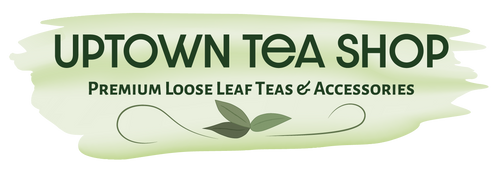Honey - Nature's Miracle Sweetener
Posted by Dani Noto on

Are you a fan of honey in your tea? I'm very selective about which teas I add a sweetener to. In most cases, my choice is to add raw, local honey.
One of the tea families that truly benefits from honey is Chai tea. Adding honey to chai teas along with cream or milk creates a warm, comforting, delicious drink... it's so yummy.
Black teas like English Breakfast, Imperial Breakfast, Irish Breakfast, and Scottish Breakfast also are good choices to add honey to. Honey can also enhance the flavor of fruit teas.
Honey tastes sweeter than sugar, so a little goes a long way. A good rule of thumb is one teaspoon of honey per cup of tea. Make sure to add the honey after you're done steeping your tea, and the water has cooled slightly. Please don't try to add honey while steeping your tea, as you'll end up with a sticky mess on your basket strainers or personal tea bags. Another FYI is that you can't add honey to already chilled iced tea. The honey sinks like a rock to the bottom of your glass and won't dissolve. To fix this, add honey to hot tea, let it cool down naturally, and then pour it over ice.
I love that honey is an all-natural sweetener with many health benefits.
Raw honey in a cup or mug of hot tea can soothe, heal, and revitalize. Raw honey is exactly what it sounds like – it's the raw form of honey, which means it hasn't been post-processed, or, in other words, it has not been pasteurized. There are more benefits in raw honey versus pasteurized because the bee propolis is still present, which is where all the beneficial properties come from. Heating honey for pasteurization kills all the benefits we want to get out of our honey.
Sometimes honey is filtered, but all that means is that they took out all the pieces. It doesn't mean it's not raw anymore. Personally, I prefer my honey without the honeycomb pieces in it.
Here are a couple of honey tips:
- Give your tea a few minutes to cool down before adding your honey. Boiling water can change the enzymes, reducing its health benefits.
- A little-known problem with buying pasteurized honey is that pasteurized honey sometimes contains extra sweeteners...really? Extra sweeteners? Honey doesn't need any additional sweeteners, so make sure to read your labels and check the ingredients.
- Also, just because you're buying raw honey doesn't always mean it's organic. You can also buy pasteurized organic honey. Organic honey only means that the flowers the bees pollinate have not been chemically treated or in contact with fertilizers. Again, read your labels. And raw, local honey is the best to get the most health benefits.
- Generally speaking, honey in tea is a much healthier choice than sugar. Sugar is empty calories and doesn't have the minerals that your body could benefit from as honey does. And, since sugar has a higher fructose level, it is more likely to raise blood sugar levels.
For over 2700 years, honey has offered excellent health and nutritional benefits. It has been used to treat a variety of ailments. It is known for its antiseptic and antibacterial properties.
Honey is:
- Antibacterial
- Rich in B vitamins
- Boosts immunity
- Eases upset tummies
- High in antioxidants
- Can help with seasonal allergies — raw, local honey is truly best since the bees pollinate local plants and flowers;
- Relieves sore throat pain — make a cup of Well Throat tea and add in some raw, local honey for an added benefit.
Two important notes: Honey, whether pasteurized or raw, still comes with risks. Honey contains small amounts of the Clostridium botulinum bacteria, which can cause a form of food poisoning called botulism. Adults could experience vomiting, diarrhea, and headaches from honey. And honey should NEVER ever be given to infants under one year of age! It can be deadly because they can't fight off this bacteria yet.
